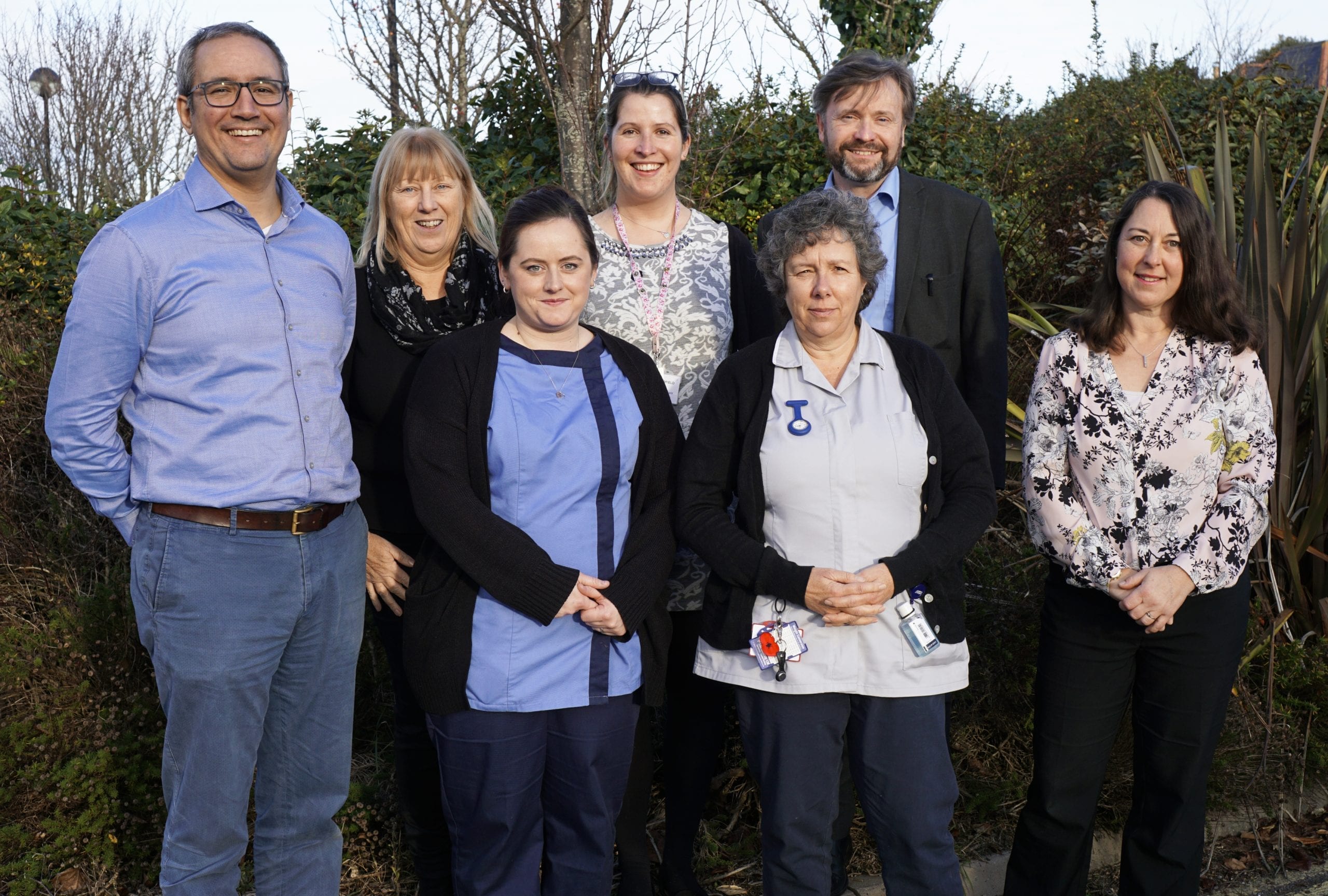Integrated care for respiratory patients
10 January 2020
Clinicians at Dorset County Hospital are working with colleagues in primary care to introduce new initiatives to improve the care offered to patients with respiratory illnesses and conditions.
The aim of their work is to better integrate the services provided by the hospital and GP practices to enable better care and diagnosis for respiratory patients and reduce the need for hospital admissions.
A range of initiatives have already been introduced which are proving successful, including multidisciplinary team meetings, community consultant clinics and improving access to clinical data. Now clinicians are working towards some more innovative schemes.
Dr Will McConnell, Respiratory Consultant at Dorset County Hospital, explains: “In recent years we have been working closely with colleagues across the local health system to improve the care we offer patients with respiratory diseases such as COPD (Chronic Obstructive Pulmonary Disease) and asthma.
“We’ve made a lot of progress but there is still a lot we can do to bridge the gap between hospital and community care, and to improve the experience of patients. We have been recruiting to new roles in the community of specialist respiratory nurses who can support patients with more severe disease and help primary care staff to enhance their skills in diagnosing and managing patients with respiratory diseases. I have been holding clinics in GP surgeries around Weymouth and Portland to give advice to GPs about their care and prevent the need for trips to the hospital. And we’ve been holding monthly team meetings in Weymouth and Portland to discuss clinical problems that the staff in primary care have encountered to help them find a way through the issues.
“We are hoping to make three more changes to the way respiratory care is delivered in future – group consultations, virtual clinics and the establishment of a diagnostic hub and patient education programme at Weymouth Community Hospital.
“Group consultations have worked very well elsewhere, seeing patients in groups of around 15 rather than individually for annual COPD and asthma reviews. This has proved popular with patients as they get more time with clinical staff and get to interact with people with similar issues – sharing experiences, providing advice and feeling supported. I would like to see the creation of a community of people with lung problems to support each other, which could have a profound effect on enabling people to feel able to support themselves and each other.
“I am also keen for hospital consultants and specialist nurses to run virtual clinics with practice nurses in GP surgeries to provide clinical supervision and education and in turn improve care for patients. We will be able to discuss current treatment plans, review prescriptions and ensure people are receiving optimal care.
“In addition we are aiming to set up a breathlessness diagnostic hub in Weymouth Community Hospital where GPs can refer patients for a specialist nurse review, tests and monitoring. Alongside this, we are planning to devise an education programme for patients newly diagnosed with asthma or COPD.
“By working collaboratively we can make a huge difference to the quality of care we offer our patients and I feel very positive about the future of respiratory care.”

